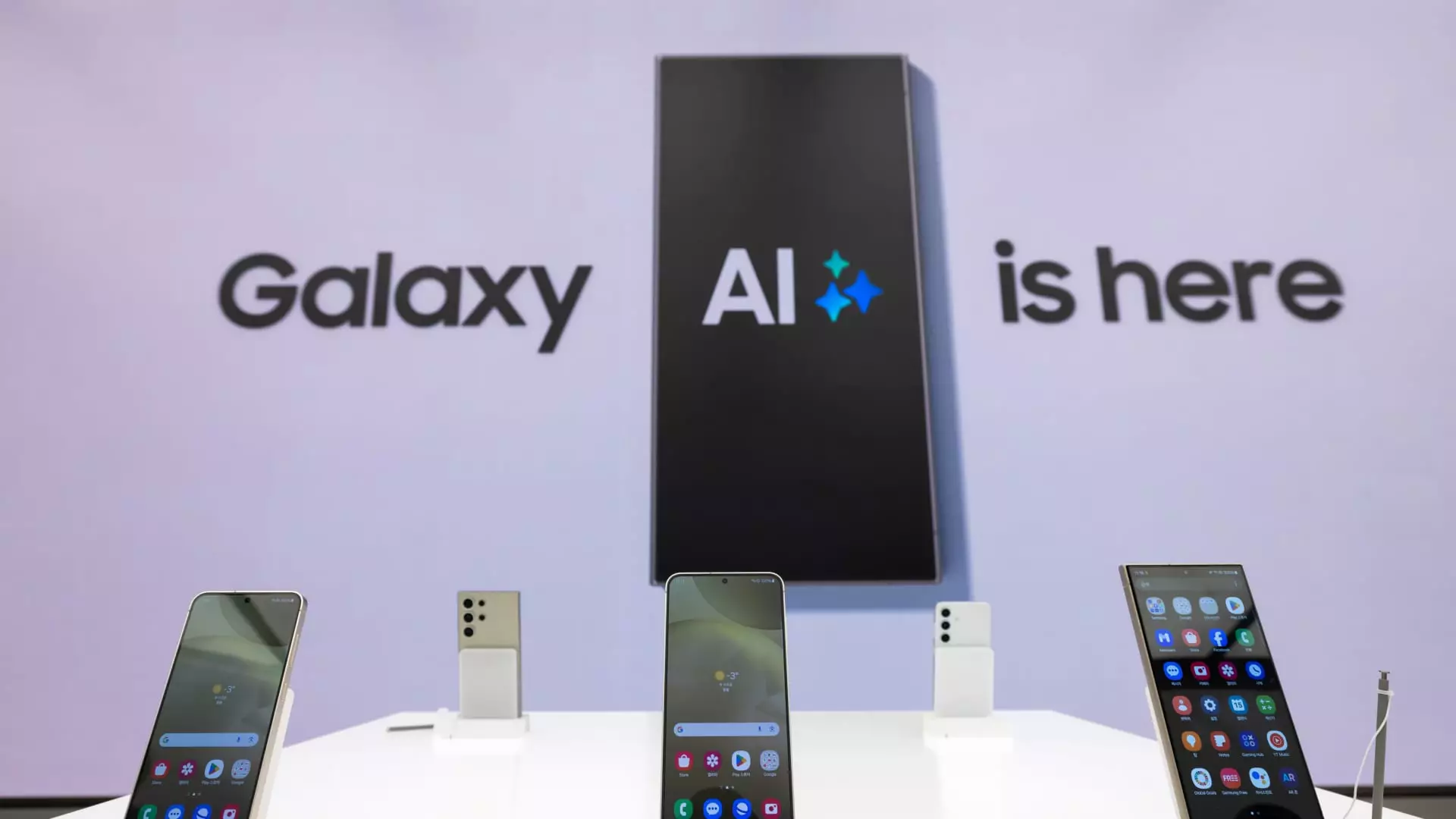Artificial intelligence in smartphones has become the latest buzzword in the tech industry, with companies looking to leverage AI capabilities to boost sales and engage consumers. The release of OpenAI’s ChatGPT in 2022 sparked significant interest in generative AI models, leading to a surge in excitement across various industries. Smartphone manufacturers are eager to capitalize on this trend and are expected to showcase their AI technologies at the upcoming Mobile World Congress in Barcelona, Spain. With AI being the talk of the town, companies are racing to incorporate advanced AI chips and on-device AI applications in their smartphones, aiming to enhance user experiences and drive innovation in the market.
While AI capabilities in smartphones are not entirely new, the introduction of large language models and generative AI represents a significant shift in the industry. Large language models, powered by vast amounts of data, are revolutionizing applications like chatbots by enabling them to generate text and images based on user prompts. This advancement goes beyond conventional virtual assistants, offering users more interactive and personalized experiences. Moreover, the concept of on-device AI is reshaping the way AI applications are processed on smartphones, moving away from cloud-based systems towards localized operations. By harnessing the power of innovative chipsets and compact AI models, phones can now deliver faster and more secure AI-powered features directly on the device.
Smartphone manufacturers envision a future of “anticipatory computing,” where AI learns user behaviors to provide seamless and intuitive interactions. However, the realization of such groundbreaking experiences relies on overcoming existing challenges in AI implementation. While devices showcased at events like MWC may demonstrate advanced AI features, the actual deployment of on-device AI remains limited, with many functions still reliant on cloud processing. This discrepancy raises concerns about the gap between AI hype and tangible user benefits, as consumers may struggle to grasp the practical implications of AI technologies in their everyday lives.
As the industry grapples with the integration of AI in smartphones, the road to achieving transformative AI experiences appears lengthy. While 2024 is seen as a pivotal year for on-device AI advancements, the realization of game-changing AI applications may require more time than anticipated. Smartphone manufacturers must shift their focus from touting AI capabilities to delivering meaningful user experiences that resonate with consumers. Avoiding “AI fatigue” and prioritizing practical use cases over technological features is crucial for driving widespread adoption of AI-powered smartphones. By fostering innovation and collaboration among developers, the industry can unlock the true potential of AI in shaping the future of mobile devices.
While artificial intelligence in smartphones holds immense potential for revolutionizing the way we interact with our devices, the current landscape reflects a mix of promise and challenges. As the industry navigates the complexities of incorporating AI technologies, the true test lies in translating AI capabilities into user-centric experiences that add meaningful value to consumers’ lives and set the stage for a new era of intelligent smartphones.


Leave a Reply